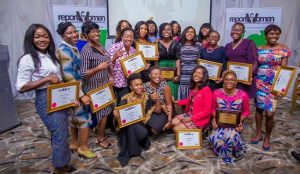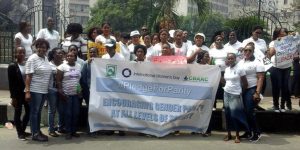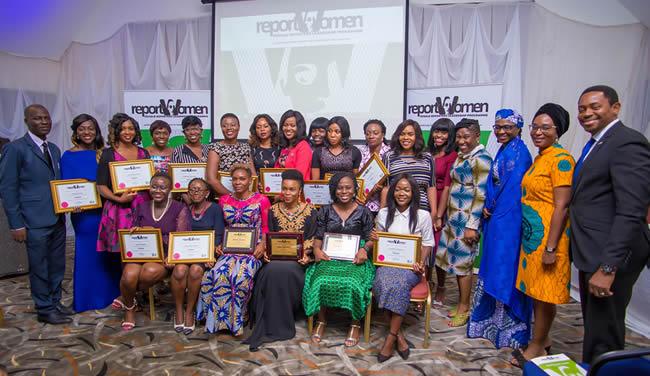The Wole Soyinka Centre for Journalism (WSCIJ) has launched a report, which revealed the gender disparity in newsrooms in Nigeria, demanding intentional bridging of the gaps.
The report, tagged, “Who leads the newsrooms and news? A report on women’s representation in newsrooms and news leadership in Nigeria,” brings to the fore, the reality of the ongoing conversations across the globe on issues relating to gender disparity in the media industry.
The study was carried out with funding support from the Bill and Melinda Gates Foundation, under the Report Women! News and Newsroom Engagement project as a tool of engagement with the staff and management of media houses.
An excerpt of the report states thus: “The study revealed that women’s representations in media leadership are low across the four media genres. Women accounted for 25.7% of leadership positions, while men dominated with 74.3%. Print and online platforms exhibited the lowest representation of women at 4.6% and 5.5% respectively, while radio and television showed slightly better representation at 9.2% and 6.5% respectively
“Geographically, the Southwest and North-Central had the most women in leadership positions, but they ranked lowest in percentage representation. The Northwest and South-South led in gender-balanced leadership with 31.2% and 28.5% representation respectively.”
Similarly, in terms of news representation, the study discovered that women were inadequately represented. Only 24% of anchors and authors were women, with men making up 76%. Men also dominated as expert resource persons or guests, comprising 87.9%, while women constituted just 12.1%. Furthermore, only 7.1% of news focused on women, while 92.9% covered other angles.
According to the WSCIJ, “To foster a more diverse and equitable media landscape, proactive measures are needed to enhance gender inclusivity and empower women within the industry.”
The Director of Daily Trust Foundation, Mr Theophilus Abbah, who reviewed the 90-page research document, opined that it provided evidence of the lop-sidedness in the media industry, stressing that “it holds a mirror to the face of media owners, media executives, and newsroom leaders, showing an error that needs to be corrected and mistake of gender imbalance in the news business. A mistake because there are no gender norms in the media business. Nowhere are we told what roles are reserved for men or women in the media business, unlike in other areas in our cultural experiences.”
Speaking on the way forward to the concerns raised in the report, Abbah stated: “The research has made several recommendations, which are relevant. It’s a call on media organisations to be deliberate in ensuring that more women are given leadership roles in the newsroom, and more female newsmakers are sourced and featured in the news. Other recommendations are to implement gender parity policies, improve representation of women in news reporting, increase female expert sources, promote gender-sensitive reporting and engage stakeholders.”

The Deputy Editor of The Eagle Online, Ms Juliana Francis, a member of the team of journalists and media managers who collected data on the gender composition of the board and management of 111 media organisations that gave birth to the report, said she was proud to be part of it, despite challenges encountered while gathering the data.
She opined that the very detailed report was designed to push for an increased representation of women in news coverage and newsroom leadership.
She further said: “This report is a reality of what many of us have been debating for years now, the under-presentation of women, not just in our newsrooms, but leadership positions. This report can now be used to engage the leadership of media organisations, pushing for an increase in the representation of women in news coverage and newsroom leadership.
“Leadership positions should not be seen or perceived as exclusively reserved for the boy’s club,” said Francis.
The Executive Director of Media Career Development Network, Mr Lekan Otufodunrin, reacting to arguments that there are not enough women in the newsrooms and management positions because of the job demand, especially working late hours, said technology has taken care of mundane excuses.
He said: “We need to begin to see how we can demystify newsroom work and leverage technology. During COVID-19, many newsrooms ran their newsrooms without being in the newsroom. If we make use of what technology makes possible, we’ll realise that it’s not about being present in the newsroom, but being able to deliver.”
He argued that with technology, a female journalist can work from anywhere as a manager. “Being a media manager doesn’t mean staying late in the office or working till 2: am.
The Executive Director of WSCIJ, Mrs. Motunrayo Alaka explained that the report, ‘Who leads the newsrooms and news? A report on women’s representation in newsrooms and news leadership in Nigeria’ is the fifth done by the Centre on issues relating to gender.

Her words: “This is our fifth report on this issue. Aside from monitoring, we’ve done a report checking the status of leadership in the newsroom in 2017. We went ahead to do reports on policies and practices in the newsroom, which showed us a major issue why women cannot stay as leaders in the newsroom.”
According to Alaka, these reports have been used to engage media leaders, especially under WSCIJ’s House-To-House, which entails going to media houses with the reports.
“We realise that news leaders do not have enough time for reflection, they are busy chasing deadlines and trying to run the business. We’ve taken it upon ourselves to reflect for the news media and present this reflection, which is needed for growth, sustainability and dynamics,” said Alaka.
She urged media owners and managers to begin to look around newsrooms, board rooms and editorial boards and make conscious decisions to recruit females to become members, especially if it is an all-male composition.
The Centre has trained 84 up to date, who are fellows of the Report Women Programme.
Dominica Nwabufo


Comments are closed.